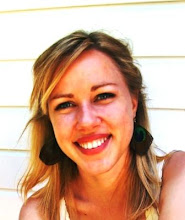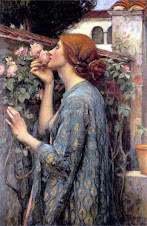The sound takes me by surprise.
On the first fine Sunday of spring, sunshine and warm temperatures have filled Lyon Park, in Arlington, Va., with people ecstatic to shed their winter coats. Dogs bark at the pale-legged joggers. A Spanish-speaking nanny scolds her blonde charge. Orioles – are they?- yes, orioles, early migrants, sing in the leafless tree, boding more pleasant days to come, though it snowed so heavily last week. A Frisbee whizzes by; the chains on the swing set squeak and whine; a Tibetan flag slaps in the breeze from a deep front porch.
I’m not in the mood. Sometimes, though I grew up in one, I notice a numbing monochrome in the manicured American suburbs, so blissfully immune to local rootedness (Why should the neighbor fly a flag for Tibet? Does he even know who lives next door?). Today, I could be in a park anywhere between Tampa and Buffalo. You could blindfold me, spin me around ten times, and shove me in any direction, and I could not fail to eventually arrive at a Starbucks identical to every other in this country. The thought depresses me almost more than I can say.
I sigh, but not for long. Among all the normal noises floats another sound, or rather, a family of sounds – plucking, twanging, crooning – faint upon the air, unamplified. I walk further into the park, and then I realize. The sound I hear is the music of place itself. It’s bluegrass, come to settle in this suburb, like a strange bird blown far off course by a hurricane, but here all the same.
I have stumbled, just three blocks from my house, on a floating bluegrass jam session of the Capital Area Bluegrass and Old-time Music Association (CABOMA). The Association, a non-profit corporation dedicated to the loving preservation of bluegrass, plus some of its musical cousins, boasts about 150 dues-paying members. On the second and fourth Sundays of every month, at least a handful of members haul out their strings for four hours of melodic fellowship here in Lyon Park. On sunny days like today, they gather around the picnic tables with no songsheets among them, playing, talking, singing, laughing. Occasionally, they do all four at once. On days of foul weather, they still come, but they all have to crowd into the Lyon Park Community Center. They don’t much like that.
“The acoustics inside are just overwhelming,” confides Kim, a middle-aged mother with a Gibson guitar who will not give her last name. “It’s better when it’s outside.”
The CABOMA musicians are just an out-of-doors crowd. They like to stand up, tap their toes in the grass, leave their mandolin cases in the sheltering roots of tall trees. Their music seeps across the lawn unamplified, unsynthesized. It falls on my ears strangely soft and raw, reaching hardly farther than a human voice speaking. To hear it, you have to get quiet. You have to get close.
For John Seebach, that’s the point. From Kentucky, Seebach now lives in Maryland and works for an environmental non-profit. He has come to the jam sessions for the last five or six years, mostly for the sense of community it provides.
“That’s the thing about bluegrass,” he muses. While we talk, he cradles a gleaming black mandolin against his chest and picks out sweet-sounding scales, tuning the instrument, “At its core, it’s a real social kind of music. It’s a shared experience. I play in a couple of bands, but you can walk into a field full of strangers, and if you all love the same music, you can play together.”
That’s another strange thing about bluegrass that strikes me: it’s a portable community. Plunked down here in the Washington suburbs, where “Fear thy neighbor” is a maxim much lived by (I sure don’t know mine), such an embrace of strangers (expensive instruments lie unguarded in the grass) feels out of place. But it also feels good.
All the musicians seem to make a point of inclusivity. Kim, new to bluegrass, tells me that CABOMA sets aside the first hour of every jam session as a “slow jam”, so that beginners can learn to play together with those more experienced. Even now, a middle-aged woman saws away at a fiddle, while two banjo players and a guitarist go gently along with her. The song? “Let the Circle Be Unbroken”.
On the other side of the lawn, a young man with a mental disability has stood for almost an hour on the outside of things, smiling and swaying with the music. A banjo player takes him by the crook of the arm and guides him to the middle of their ragged half-moon, where he can watch her nimble fingers dance all over the truss board.
Though he hails from the Bluegrass State, Seebach grew up in “the city” (Lexington, population 275,726). He says that he runs across more bluegrass inside the Capital Beltway than he ever did in Kentucky. Thus the music appeals to him more for its present charms than for any nostalgia. For others, though, Sundays afternoons are a ticket to home and memory.
Tom Smith, a Missouri native and a National Incident Systems “guru” for FEMA, doesn’t just have a guitar. He has a Dobro resophonic guitar with a built-in resonator. He wears it around his neck with the side flat again his rib cage.
“Some people think it’s whiny, but me, I like it. It puts that high, lonesome sound in high, lonesome music. Before amplifiers, they needed something to cut through all that orchestra music so a guitar could still be heard. Some Czech brothers came up with a resonator. Now they got amplifiers. They don’t use resonators anymore, except some blues-players down in Memphis, and up in the hills of course. If you don’t have any electricity, what good’s an amplifier?”
Tom grew up in a place where amplifiers didn’t do much good.
“Hoo, boy!” he laughs, “Let’s put it like this: I saw very few strangers before I was 18.”
I ask how he came to live in Washington.
“Now that’s a sad story,” he says, deflating. Picking at the Dobro, he starts to murmur along to a mournful little tune from the next group over, something about train whistles and suitcases.
It turns out the Smith moved because of his ex-wife, a professor at the University of Maryland. They divorced after 27 years of marriage. He brightens visibly, though, at the sight of Alexia Roberts, a frizzy-haired woman in high-waisted pants. He met her playing bluegrass at a jam session.
“My current life’s companion,” he calls her, and strides along the grass to meet her with the gait of a man going in his own front door.
I come to bluegrass an outsider. In some murky past, I used to play the flute not too badly, so I can still count beats and read music. They might even find room for a flute out here, as blades of grass will bend beneath a passing foot. (Kim tells me with some astonishment that she has seen a recorder, and even a cello, joining in the jam.) But, out of some reverence, I wouldn’t try. A California transient from the San Francisco suburbs, with no real cultural roots that go deeper than Brian Wilson, I am too much a product of the cul-de-sacs I feel proud of disliking. I would not know how to join in. Instead, I will sit back and let some “hillbilly soul” wash over me, wondering that it’s here at all, hoping it will do me some good just to hear it.
Bluegrass is indeed a funny bird to find in Lyon Park. In the one of the wealthier and well-educated areas of Virginia, and one of the most proudly secular, it’s a music of faith and poverty. In the rootless cul-de-sacs, it’s a music of place. Amongst the locked and shuttered homes of those who can afford to flee urban crime, it’s a music of trust and community.
The musicians, though, seem unfazed by any sense of discord with their surroundings.
“Let the Circle Be Unbroken” has ended, and the banjo player, a man with a salt-and-pepper beard, pounds his fist against his chest.
“The past couple weeks, I’ve been singing so well,” he says, “But then I woke up on Friday with this gook in the back of my throat. I went to church this morning and there was no way I could sing the b-flat. You just sing the baseline, and you pray for it to go away.”
But he launches into another song anyway, an old-timey gospel peace about death and heaven.
“I do got the gravel,” he observes philosophically, and the others chuckle. He croons on:
I’ll fly away, oh, glory! I’ll fly away in the morning. When I die, hallelujah, by and by, I’ll fly away.
May the bluegrass musicians of CABOMA not fly far – or soon.
All Clear!
-
Of all the memories, experiences and things I brought back from Uganda, I
have managed not to bring Malaria with me. I was so happy I had to share it
with ...
16 years ago






2 comments:
Alyson,
You are just plain a good writer. I assume all this is first draft off the top of your head. That's amazing. You are a keen observer and a thoughtful watcher and lyrical writer. I hope you're writing books, songs, poems, and essays.
So nice to see you back where you belong. I sat on the grass and experienced the music and the voices with you. I didn't even have to close my eyes to be there. What a gift you have, and what a gift you are.
Gg
Post a Comment